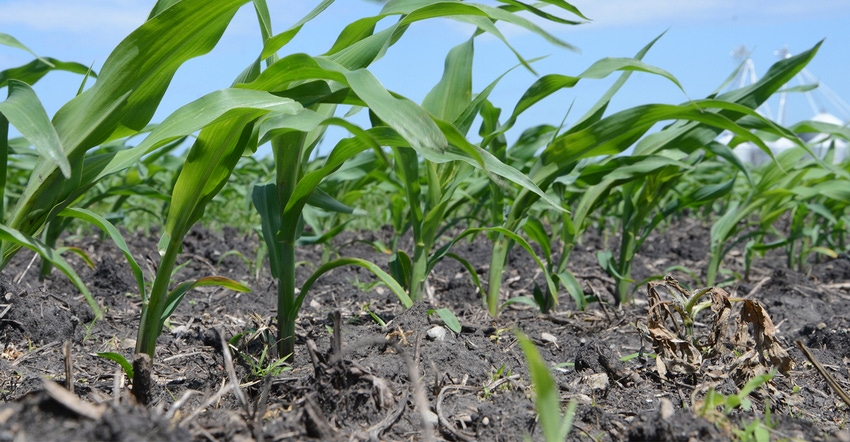September 7, 2018

The science of crop modeling keeps advancing. Company software engineers are expanding their knowledge of the interaction among seed, soil, weather and growing conditions to better match crop to location. The latest news on that front comes from The Climate Corporation, a subsidiary of Bayer.
The company is advancing its predictive seed selection and placement technology to precommercial testing with farmers this fall. This corn-focused effort aims to help farmers in three states in the Midwest better place the right hybrids on their farms. The implication for the tech, however, is wider-reaching; as more information is available, these types of tools will help farmers across the country fine-tune seed selection.
For now, the test starts with 50 dealers and 200 customers who will be given access to Seed Advisor, which Climate says is a data-driven tool that provides dealers with a ranked hybrid recommendation by field, and optimal seeding rate recommendations for those fields. “There are complex interactions in the field that we have to sort out,” says Sam Eathington, chief science officer. He adds that these tools are powered by “deep data sets and expansive field trial research.”
During the announcement event at the 2018 Farm Progress Show, Eathington shared a slide from Fred Below, a professor of plant physiology at the University of Illinois, that shows the seven key factors that impact corn production. Eathington observed that 70% of the actions taken to raise a corn crop are controlled by the farmer. “There’s opportunity there to boost yields,” he says.
During a 2017 test of Seed Advisor, the company reports the system provided an average advantage of 6 bushels per acre, with a nearly 80% win rate in farmer field trials. The results from 2018 testing on more than 100,000 acres have not yet been released. For 2019, the expanded trial will add even more acres, and the company is targeting 2019 for the full commercial launch of the product — pending results of the larger test.
Building the database
A key factor in expanded “smart” seed selection is all that information. Climate has been working on that system for several years, and Tonya Ehlmann, placement science lead, Climate, explains that the system has access to full genetic information for Bayer product seeds — including Channel and Dekalb.
“We’ve invested the time and money to process the data. We’ve worked to build, validate and test the product in real-life situations,” she says. “We have access to the Bayer research and development hybrid product pipeline that helps build the model to predict performance.”
This means that even a new hybrid loaded into the system comes along with three or four years of added field performance information from development plots. Ehlmann adds that this helps farmers overcome concerns about the system not keeping up with quicker hybrid changes; an issue that has grown in the past decade for farmers.
In the field
Steve Moffitt, a Springfield, Ill., area producer, was on hand to discuss his experience with Seed Advisor, and notes his reaction when first approached: “They came to us with an idea that they had a system that would select hybrids better than me. No way. I was skeptical of this thing,” he admits.
Moffitt took on the system and accepted about 60% of the recommendations offered. In 13 side-by-side trials in the first year, 10 of 13 were won by the Seed Advisor top choice for that field, with a 7-bushel-per-acre advantage on those “winning” acres. For 2018, Moffitt says he took 95% of the recommendations.
Greg Deim, a Channel seed dealer, will be among the 50 for the 2019 precommercial test, and he was also involved in the 2018 test. He sees this tool changing the way he talks to customers. “For seed sales, the discussion will be more focused on the science of the field,” he says. “We’ll be able to show the customer exactly why we’re recommending those products.”
The system works by suggesting the top hybrids for a specific field. The “decision engine” was built using real-world seed performance data and is validated against more than 4 million acres of historical, real-farm performance data from the company’s FieldView platform. Farmers get the top three choices of Bayer-brand hybrids for a field and can choose which to plant, along with the planting rate.
For Rick DeGroote of Parkersburg, Iowa, the tech has value for his operation that operates in a 40-mile radius across a lot of different field types in his area. He shared that in the past, he might take a recommendation and feel he was shooting himself in the foot with the results. His test experience with Seed Advisor, however, gives him a different kind of confidence. “We were making an educated guess, and there was not a lot of science behind that; now, there is,” he says.
You can learn more at climate.com.
About the Author(s)
You May Also Like






